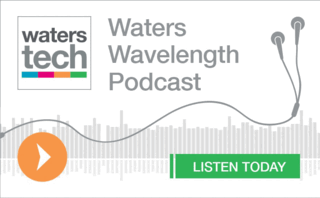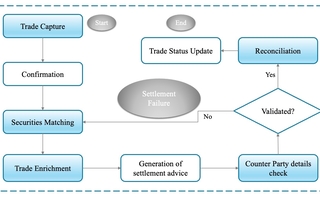Deutsche Börse 'cannot afford' to miss out on generative AI; SimCorp deal on schedule
The exchange group wants to be at the forefront of the emerging technology field and has extended its partnership with Google into AI.

Big Tech players are betting big on and continuing to develop their large language model (LLM) capabilities, a subset of generative AI.
In the capital markets, the initial reaction to the technology and its applicability to the industry was that it is in its “first generation” and requires fine-tuning and reassurance before it can be used in such a highly regulated environment. Since then, however, some financial services vendors have made their own product plays with LLMs. Notably, Bloomberg developed BloombergGPT, and Broadridge’s bond trading platform LTX launched BondGPT.
This action is something Deutsche Börse can’t—and won’t—afford to miss.
It’s our explicit wish and our ambition that we are not becoming a laggard in this field
Theodor Weimer, Deutsche Börse
In response to an analyst question about how the exchange views generative AI, CEO Theodor Weimer said during the group’s Q2 earnings call that the hype behind AI is comparable to how the industry viewed cloud only a few years ago. Now, AI, and specifically generative AI, is “the name of the game.”
“As a technology company, we cannot afford not to try to be at the forefront of the technology,” he said.
His comment comes at a time when financial exchanges are re-inventing themselves. The emergence of cloud, AI, machine learning, and other forms of automation are reshaping these groups from utilitarian marketplaces to innovative tech companies, of which marketplaces only account for one part. Through acquisitions—Nasdaq and Cboe have been most active in snapping up fintech companies—and through organic growth, exchanges want to be thought of as technology firms.
Weimer said Deutsche Börse already uses language-driven bots such as Albert—which stands for A Lite BERT—on a use-case basis. He said what the exchange is doing so far with AI is primarily optimizing the company’s efficiency, rather than creating new revenue sources.
He then highlighted Deutsche Börse’s partnership with Google, announced in February, joining the other exchanges that have signed similar partnerships with cloud providers. The 10-year deal is designed to enhance Deutsche Börse’s cloud offering.
But since the fanfare around generative AI began, Weimer said both Deutsche Börse and Google have agreed to extend the existing partnership into the field of AI, and the two are currently exploring ways to do that.
“It’s our explicit wish and our ambition that we are not becoming a laggard in this field,” Weimer said.
He added that it’s too early to calculate and quantify the expected efficiency gains to be reaped from AI and said perhaps it shouldn’t even be done. “As we have seen with the cloud side, this will take 12 to 18 months or longer. It will come into play on the efficiency gains side, but you should not expect meaningful numbers here in the short term,” he said.
SimCorp deal pending one approval
Earlier in its strategic journey, Deutsche Börse identified several sectors and businesses that could lead to growth, and decided to buy instead of build—leading to the additions of Stoxx, Axioma, ISS, and Qontigo, and most recently, SimCorp.
“The acquisition will contribute significantly to our secular growth by helping us to address trends in the asset management industry. In addition, it will help us to further diversify our business mix, grow our buy-side exposure and increase our recurring revenues,” Weimer said.
It plans to combine SimCorp, Qontigo, and ISS into an investment management solutions group—which it intends to launch in the fourth quarter.
Weimer said Deutsche Börse expects a run rate Ebitda of around €90 million ($99 million) from the new segment, of which two-thirds will come from the SimCorp acquisition.
Weimer said the tender offer for SimCorp’s shareholders under Danish law started on May 25 and will remain open until August 3. Deutsche Börse has also received three out of four regulatory approvals for the deal. So far, it has gotten antitrust clearance in the US and foreign direct investment approvals in Denmark and Italy. It is still pending approval from the EU Commission but expects a decision in September.
Deutsche Börse recorded a 20% increase in net revenue to €1.2 billion ($1.3 billion) during the quarter year-on-year, driven mainly by its data and analytics business. Gregor Pottmeyer, CFO at Deutsche Börse, said the group had expected some normalization of ESG net revenue growth to the segment from the previous year.
“But the ESG analytics business at ISS still saw constant net revenue go up 14% in the first six months. This is driven by continued client demand for high-quality ESG data and analytics,” he said.
Further reading
Only users who have a paid subscription or are part of a corporate subscription are able to print or copy content.
To access these options, along with all other subscription benefits, please contact info@waterstechnology.com or view our subscription options here: http://subscriptions.waterstechnology.com/subscribe
You are currently unable to print this content. Please contact info@waterstechnology.com to find out more.
You are currently unable to copy this content. Please contact info@waterstechnology.com to find out more.
Copyright Infopro Digital Limited. All rights reserved.
You may share this content using our article tools. Printing this content is for the sole use of the Authorised User (named subscriber), as outlined in our terms and conditions - https://www.infopro-insight.com/terms-conditions/insight-subscriptions/
If you would like to purchase additional rights please email info@waterstechnology.com
Copyright Infopro Digital Limited. All rights reserved.
You may share this content using our article tools. Copying this content is for the sole use of the Authorised User (named subscriber), as outlined in our terms and conditions - https://www.infopro-insight.com/terms-conditions/insight-subscriptions/
If you would like to purchase additional rights please email info@waterstechnology.com
More on Emerging Technologies
Quants look to language models to predict market impact
Oxford-Man Institute says LLM-type engine that ‘reads’ order-book messages could help improve execution
The IMD Wrap: Talkin’ ’bout my generation
As a Gen-Xer, Max tells GenAI to get off his lawn—after it's mowed it, watered it and trimmed the shrubs so he can sit back and enjoy it.
This Week: Delta Capita/SSimple, BNY Mellon, DTCC, Broadridge, and more
A summary of the latest financial technology news.
Waters Wavelength Podcast: The issue with corporate actions
Yogita Mehta from SIX joins to discuss the biggest challenges firms face when dealing with corporate actions.
JP Morgan pulls plug on deep learning model for FX algos
The bank has turned to less complex models that are easier to explain to clients.
LSEG-Microsoft products on track for 2024 release
The exchange’s to-do list includes embedding its data, analytics, and workflows in the Microsoft Teams and productivity suite.
Data catalog competition heats up as spending cools
Data catalogs represent a big step toward a shopping experience in the style of Amazon.com or iTunes for market data management and procurement. Here, we take a look at the key players in this space, old and new.
Harnessing generative AI to address security settlement challenges
A new paper from IBM researchers explores settlement challenges and looks at how generative AI can, among other things, identify the underlying cause of an issue and rectify the errors.








